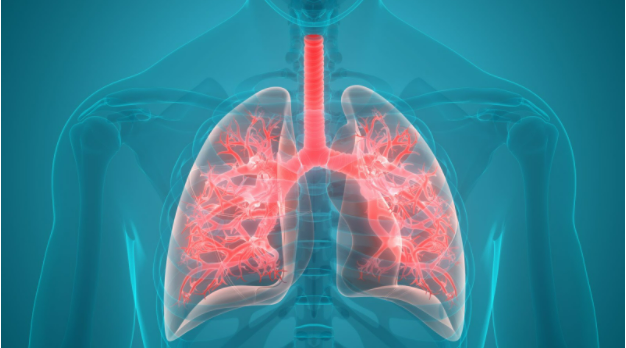Preparing For A Pulmonary Function Test (PFT)
- Posted On:


Do you have an upcoming Pulmonary Function Test with the Respiratory Therapy Team at CCH? This article can help you understand and prepare for this common outpatient exam. While there are many different reasons why pulmonary function tests (PFTs) may be done, a PFT can tell us a lot about the health of your lungs. You may have PFTs if your provider needs help to diagnose you with a health problem such as:
Allergies
Respiratory infections
Trouble breathing from injury to the chest or a recent surgery
Chronic lung conditions, such as asthma, bronchiectasis, emphysema, or chronic bronchitis
Asbestosis, a lung disease caused by inhaling asbestos fibers
Restrictive airway problems from scoliosis, tumors, or inflammation or scarring of the lungs
Sarcoidosis, a disease that causes lumps of inflammatory cells around organs, such as the liver, lungs, and spleen
Scleroderma, a disease that causes thickening and hardening of connective tissue
PFTs may be used to check lung function before surgery or other procedures in patients who have lung or heart problems, who are smokers, or who have other health conditions. Another use of PFTs is to assess treatment for asthma, emphysema, and other chronic lung problems. Your healthcare provider may also have other reasons to advise PFTs.
What are the risks of pulmonary function tests?
Because pulmonary function testing is not an invasive procedure, it is safe and quick for most people. But the person must be able to follow clear, simple directions.
All procedures have some risks. The risks of this procedure may include:
Dizziness during the tests
Feeling short of breath
Coughing
Asthma attack brought on by deep inhalation
In some cases, a person shouldn’t have PFTs. Reasons for this can include:
Recent eye surgery, because of increased pressure inside the eyes during the procedure
Recent belly or chest surgery
Chest pain, recent heart attack, or an unstable heart condition
A bulging blood vessel (aneurysm) in the chest, belly, or brain
Active tuberculosis (TB) or respiratory infection, such as a cold or the flu
Your risks may vary depending on your general health and other factors. Ask your healthcare provider which risks apply most to you. Talk with him or her about any concerns you have.
Certain things can make PFTs less accurate. These include:
The degree of patient cooperation and effort
Use of medicines that open the airways (bronchodilators)
Use of pain medicines
Pregnancy
Stomach bloating that affects the ability to take deep breaths
Extreme tiredness or other conditions that affect a person’s ability to do the tests (such as a head cold)
How do I get ready for pulmonary function tests?
Your healthcare provider will explain the procedure to you. Ask him or her any questions you have. You may be asked to sign a consent form that gives permission to do the procedure. Read the form carefully. Ask questions if anything is not clear.
Tell your healthcare provider if you take any medicines. This includes prescriptions, over-the-counter medicines, vitamins, and herbal supplements.
Make sure to:
Stop taking certain medicines before the procedure, if instructed by your healthcare provider
Stop smoking before the test, if instructed by your healthcare provider. Ask your provider how many hours before the test you should stop smoking.
Do not eat a heavy meal before the test, if instructed by your healthcare provider.
Follow any other instructions your healthcare provider gives you.
Your height and weight will be recorded before the test. This is done so that your results can be accurately calculated.
What happens during pulmonary function tests?
You may have your procedure as an outpatient. This means you go home the same day. Or it may be done as part of a longer stay in the hospital. The way the procedure is done may vary. It depends on your condition and your healthcare provider's methods. In most cases, the procedure will follow this process:
You’ll be asked to loosen tight clothing, jewelry, or other things that may cause a problem with the procedure.
If you wear dentures, you will need to wear them during the procedure.
You’ll need to empty your bladder before the procedure.
You’ll sit in a chair. A soft clip will be put on your nose. This is so all of your breathing is done through your mouth, not your nose.
You’ll be given a sterile mouthpiece that is attached to a spirometer.
You’ll form a tight seal over the mouthpiece with your mouth. You’ll be instructed to inhale and exhale in different ways.
You will be watched carefully during the procedure for dizziness, trouble breathing, or other problems.
You may be given a bronchodilator after certain tests. The tests will then be repeated several minutes later, after the bronchodilator has taken effect.
What happens after pulmonary function tests?
If you have a history of lung or breathing problems, you may be tired after the tests. You will be given a chance to rest afterwards. Your healthcare provider will talk with you about your test results.
Do you still have questions about your upcoming Pulmonary Function Test? Give Respiratory Therapy a call at 307-688-2300.
Article Source: Johns Hopkins Medicine: Pulmonary Function Tests

